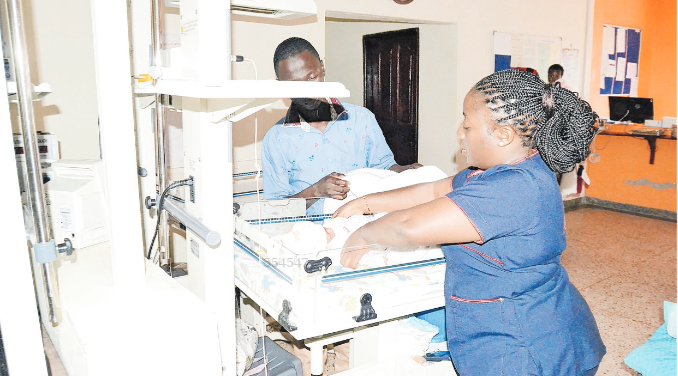Prime
Will the pandemic change our collective national psyche?

Author: Moses Khisa. PHOTO/FILE
What you need to know:
- Mr Moses Khisa says: Boda bodas and taxis are a mess and menace on the roads because we don’t see them for what they are – a public nuisance.
The incessant and deafening sounds of ambulance sirens around Kampala. Reports of deaths of friends and relatives. News that one has just tested positive or that they are actually quite sick. Then came the lockdown.
Uganda and especially Kampala has been in tumult. The devious and deadly virus has taken down Ugandans in quite shocking ways. It’s been tough times, a heavy toll on the nation. Yet, to be sure, this was predictable. We knew that mutants and new strains were circulating in other countries.
The situation in India earlier this year was a loud warning of what awaited Uganda. India has tight social, historical and commercial ties with Uganda. It was quite obvious that the devastation in India was on its way to Uganda. It was a matter of time. Did we anticipate and prepare?
Last year, in the early phases of the pandemic, Uganda received glowing praises and plaudits for the swift and fairly sound handling of this public health crisis that was as slippery as deadly. We had a national lockdown and several restrictions for most of 2020.
Did we take lessons and use that time to plan and prepare for possible worse scenarios ahead? Did government technocrats and bureaucrats do any modelling and forecasting to figure out what may lie ahead and how best to undertake measures for safeguarding the wellbeing of all Ugandans?
When you speak to people close to state power and those in the know of the goings on in government, you learn a lot. Recently, someone closely connected to the rulers told me in matter-of-factly that there was no functional government led by Mr Museveni.
Ministers and senior government officials do whatever they want. The chief ruler is simply unable to make things move unless where his power is directly threatened.
A prominent and powerful Opposition leader told me how monies meant for shoring up Uganda’s Covid-19 response activities ended up in building arcades for those in charge of the kitty. But what kind of human beings are we who take advantage of a vicious and unprecedented public health emergency to engage in dubious person wealth accumulation?
When the pandemic unleashed itself early last year, it was novel. A year and a half later, a lot of water has gone under the bridge. Scientists are still wrestling with myriad unclear and unanswered questions, but there are a few aspects of the response regime that are now firmly well established: testing and testing, mask wearing, sanitising and handwashing. These need a robust and aggressive around the clock routine public infrastructure.
Last week, I took a PCR Covid-19 test at Makerere University hospital. I paid Shs200,000. Unacceptably expensive and simply ludicrous. Strangely, officials at the hospital found it a little difficult giving me a receipt for this payment, something that I thought was straightforward. It appeared that they do not issue receipts, thus it was unexpected when I insisted I wanted one. Someone actually asked me why I wanted a receipt! Something is not right.
This pandemic is a huge exogenous shock. For all the devastation it has wrought, there are critical lessons for us to take or ignore. As a nation, we have seen first-hand what it means to abandon the public good like a functional and reliable healthcare system, the price for not being able to have basic manufacturing capabilities and the lack of emergency response infrastructure.
Covid-19 has claimed both the rich and powerful, the lesser and impoverished. This should humble all of us to appreciate our shared humanity, our vulnerabilities and the need to work for collective goods.
Related, this monumental crisis must awaken us to embrace the willingness to demand for better government, for accountability and to refuse to supplicate before the rulers. The quality of government and the calibre of leadership are often a reflection of the nature of society. Delivery of public goods and services is dependent on the demand and pressure from the citizenry.
Kampala’s roads are annoyingly potholed because that’s what we have settled for. Boda bodas and taxis are a mess and menace on the roads because we don’t see them for what they are – a public nuisance.
If we don’t change our collective national psyche and insist on a better country where those in authority must answer tough questions, where the ruled have to adhere to the set rules and where the standards for public conduct are set high, we shall remain a mediocre society.
This pandemic can help us change course, but that is if we want to.




